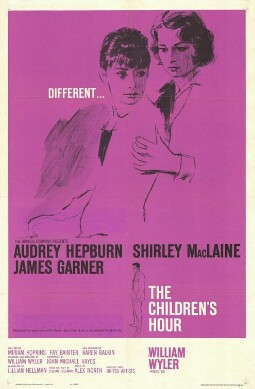How many have you read? I put my own comments under each.
1. The Great Gatsby by F. Scott Fitzgerald
A love story within a love story. It takes the American dream, amplifies it, and then tears it apart in every way possible.
Carmen: Hated it.
2. To Kill a Mockingbird by Harper Lee
It blends innocence and triumph in a way that makes you learn something without actually feeling like you’re learning. Also, you will fall in love with Atticus Finch.
Carmen: This is a must read!
3. Night by Elie Wiesel
The Jewish author was sent to Auschwitz at 15-years-old. This is his story of personal struggle, heartbreak, and passion. At barely 100 pages, you can’t afford to not read this book.
Carmen: Read the book, and listened to the audio. Heartbreaking.
4. Lord of the Flies by William Golding
Lord of the Flies reveals the true nature of humans and will even make you question your own morality.
Carmen: It's been a long time, but I remember it as being entertaining, if not a little sad.
5. Heart of Darkness by Joseph Conrad
This novel is the inspiration for Apocalypse Now. Need I say more? (The answer to that question is no.)
Carmen: Really a short story, or novella, it is, indeed, dark.
6. The Catcher in the Rye by J.D. Salinger
The protagonist’s fear for adulthood will make this one of the most relatable books you will ever read.
Carmen: One of the most overrated books by one of the most overrated authors of all time.
7. Of Mice and Men by John Steinbeck
It gives new meaning to the American dream, focusing on power and a friendship that will enrage you with jealousy (but in a good way).
Carmen: Frankly, I don't get the hubbub about this one. It was easy to read, but I didn't see the hidden jewel.
8. Nineteen Eighty-Four by George Orwell
This novel will scare the crap out of you, and you will love it. Besides, Big Brother is watching, so it’s not like you even have a choice now…
Carmen: Full of imagery, metaphors and lessons for every generation.
9. Slaughterhouse-Five by Kurt Vonnegut
It incorporates time travel and porn stars. Enough said.
Carmen: Another one that I just don't get.
10. Frankenstein by Mary Shelley
Mary Shelley bet her husband that she could write a better horror story than him. She did.
Carmen: Never read this one.
11. Uncle Tom’s Cabin by Harriet Beecher Stowe
Because everyone’s in need of a good cry.
Carmen: Never read this one, but it would be worth it just to find out exactly what black people mean when they call someone an "Uncle Tom".
12. Animal Farm by George Orwell
This book is basically a satirical puppet show about a revolution. If anything, you should read it for this quote: “All animals are equal, but some animals are more equal than others.”
Carmen: Creepy as hell.
13. Waiting for Godot by Samuel Beckett
It’s a play about two characters who wait for something that never comes, but it’s never dull, just thought-provoking.
Carmen: This one is on my list to read.
14. Mrs. Dalloway by Virginia Woolf
Virginia Woolf will show you how disconnected you are from society, and you will thank her for doing so.
Carmen: Never read this one.
15. Brave New World by Aldous Huxley
Because you’ve always wondered what the world would be like without religion.
Carmen: Never read this one, but the above comment intrigues me. Because, yes, I have wondered.
16. As I Lay Dying by William Faulkner
Everyone in this novel is pretty messed up, and that’s refreshing. Also, James Franco is releasing a film adaption of the book, so you have to read it before that comes out, too.
Carmen: Have never read this one, but it sounds like a real downer.
17. Catch-22 by Joseph Heller
This is the only book that will make you feel OK about American politics. It’s basically a novel version of The Daily Show with Jon Stewart.
Carmen: Never read this one, but (again), the comment above intrigues me.
18. One Flew Over the Cuckoo’s Nest by Ken Kesey
It uses literature’s greatest heroes and villains to make you question authority, freedom, and reality. And Ken Kesey is an LSD-tripping, counter-cultural genius.
Carmen: Hated almost every page of this one, but couldn't put it down. Beautiful writing.
19. The Bell Jar by Sylvia Plath
Its bleak honesty and dark humor will teach you to not sweat the small stuff.
Carmen: I thought this one was a self-absorbed, drug-laced, non-story. If Sylvia hadn't killed herself, this one would probably not be on the list.
20. Death of a Salesman by Arthur Miller
Miller uncovers the reality of the American dream in a way that will make you question your own desire for success.
Carmen: Never read it, but am curious to do so. Have read other Arthur Miller works and have found them all to be well-written glimpses of Americana.
21. Beowulf by Anonymous
Action, adventure, monsters, dragons, heroism, fame.
Carmen: Not really for me.
22. Metamorphosis by Franz Kafka
It will single-handedly change the way you treat people.
Carmen: Have always wanted to read this, and is on my list; however, reading "Naked Lunch" by William S. Burroughs damaged me enough to put this one off.
23. Their Eyes Were Watching God by Zora Neale Hurston
It will make you rethink everything you thought you knew about love.
Carmen: One of the best books ever written. Should be read again and again.

